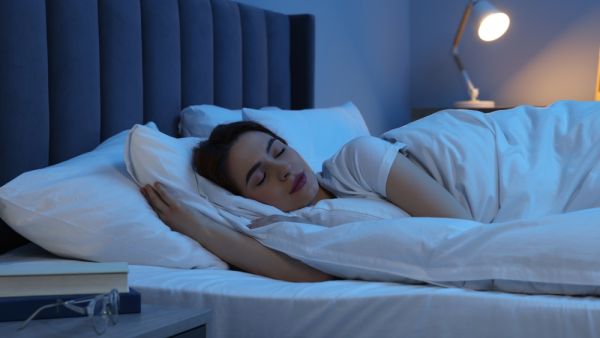ALBAWABA In our fast-paced world, achieving deep, restorative sleep can be challenging. Deep sleep, also known as slow-wave sleep, is crucial for physical health, emotional well-being, and overall cognitive function. Here are some steps to help you achieve better deep sleep:
1. Establish a Consistent Sleep Schedule
Your body thrives on routine. Going to bed and waking up at the same time every day, even on weekends, helps regulate your internal clock. This consistency can make it easier for you to fall asleep and wake up naturally.
2. Create a Sleep-Inducing Environment
Your bedroom should be a sanctuary for sleep. Here are some tips to create an ideal sleep environment:
- Darkness: Use blackout curtains or a sleep mask to block out light.
- Quiet: Use earplugs, a white noise machine, or a fan to drown out disruptive sounds.
- Cool Temperature: Keep your bedroom temperature between 60-67°F (15-19°C) for optimal sleep.
- Comfortable Bedding: Invest in a comfortable mattress and pillows that provide good support.
3. Limit Exposure to Screens Before Bed
The blue light emitted by phones, tablets, and computers can interfere with your body's production of melatonin, a hormone that regulates sleep. Aim to turn off electronic devices at least an hour before bedtime. Instead, engage in calming activities such as reading a book, listening to soothing music, or practicing relaxation exercises.
4. Mind Your Diet
What you eat and drink can significantly impact your sleep quality. Here are some dietary tips for better sleep:
- Avoid Caffeine and Nicotine: These stimulants can keep you awake. Try to avoid them for at least six hours before bedtime.
- Limit Alcohol: While alcohol might make you feel sleepy initially, it can disrupt your sleep cycle later in the night.
- Don't Eat Heavy Meals Late at Night: Eating large or spicy meals can cause discomfort and indigestion, affecting your ability to fall asleep.
5. Exercise Regularly
Regular physical activity can help you fall asleep faster and enjoy deeper sleep. However, try to avoid vigorous exercise close to bedtime, as it can be stimulating. Aim for at least 30 minutes of moderate exercise most days of the week.
6. Manage Stress and Anxiety
Stress and anxiety can be significant barriers to deep sleep. Techniques to manage stress include:
- Relaxation Exercises: Practice deep breathing, meditation, or progressive muscle relaxation before bed.
- Journaling: Writing down your thoughts and worries can help clear your mind and reduce anxiety.
- Mindfulness: Engage in mindfulness activities that promote relaxation and mental clarity.
7. Limit Naps
While short naps can be beneficial, long or irregular napping during the day can negatively affect your nighttime sleep. If you must nap, aim for a 20-30 minute nap early in the afternoon.
8. Exposure to Natural Light
Exposure to natural light during the day helps regulate your circadian rhythm. Spend time outside during daylight hours, and let natural light into your home or workspace.
9. Seek Professional Help if Needed
If you've tried these tips and still struggle with sleep, it might be time to seek professional help. Sleep disorders, such as sleep apnea or insomnia, require medical attention. Consult a healthcare provider or a sleep specialist for a comprehensive evaluation and treatment plan








